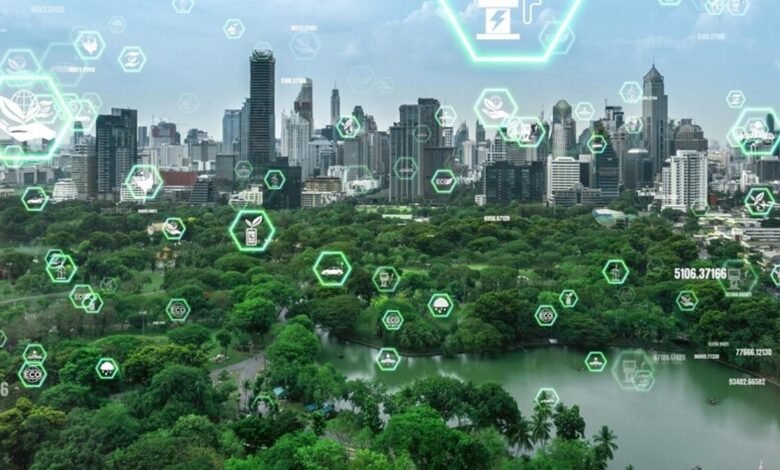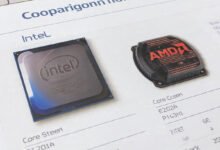IoT and Sustainability: The Future of Green Living

In our rapidly evolving world, the fusion of technology and sustainability has become more crucial than ever. One of the key players in this transformation is the Internet of Things (IoT). This article explores how IoT is shaping the future of green living, ushering in a new era of sustainable practices across various domains.
The Internet of Things, or IoT, refers to the interconnected network of devices, vehicles, and other objects embedded with sensors, software, and network connectivity. These devices can communicate and exchange data, leading to a seamless integration of the digital and physical worlds.
The Intersection of IoT and Sustainability
Reducing Energy Consumption
One of the primary ways IoT contributes to sustainability is through the reduction of energy consumption. Smart devices, such as thermostats and lighting systems, can be programmed to operate efficiently, optimizing energy usage in homes and businesses.
Efficient Waste Management
IoT plays a pivotal role in waste management by providing real-time data on bin fill levels. This data allows for more efficient waste collection routes, minimizing fuel consumption and reducing the overall environmental impact of waste disposal.
Read More: The Impact of IoT and 5G on Businesses
Smart Homes: A Sustainable Living Solution
Energy-Efficient Appliances
The integration of IoT in homes includes the use of energy-efficient appliances. Smart refrigerators, washing machines, and HVAC systems are designed to operate at optimal energy levels, contributing to a significant reduction in household energy consumption.
Automated Lighting and Heating Systems
Smart lighting and heating systems adapt to user behavior and external conditions. They can automatically adjust brightness and temperature, ensuring energy is only used when necessary, thus fostering sustainable living practices.
IoT in Agriculture: Revolutionizing Farming Practices
Precision Farming for Resource Optimization
IoT sensors in agriculture enable precision farming, allowing farmers to monitor soil conditions, crop health, and weather patterns in real-time. This data-driven approach optimizes resource usage, leading to higher yields with minimal environmental impact.
Real-Time Monitoring of Crop Health
Continuous monitoring of crop health through IoT devices provides early detection of diseases and pests. This enables farmers to take proactive measures, reducing the need for harmful pesticides and promoting sustainable farming practices.
Sustainable Transportation Enabled by IoT
Smart Traffic Management
IoT contributes to sustainable transportation by optimizing traffic flow. Smart traffic management systems reduce congestion and fuel consumption, creating more eco-friendly urban environments.
Electric Vehicles and Charging Infrastructure
The rise of electric vehicles (EVs) is a testament to IoT’s impact on sustainable transportation. The seamless integration of IoT in EVs enables real-time monitoring, predictive maintenance, and efficient charging infrastructure development.
Challenges and Concerns in the Adoption of IoT for Sustainability
Data Security and Privacy
As IoT proliferates, concerns about data security and privacy become more pronounced. Ensuring secure data transmission and storage is crucial to maintaining public trust in the adoption of IoT for sustainable practices.
Environmental Impact of IoT Devices
The production and disposal of IoT devices pose environmental challenges. Sustainable design practices and responsible disposal mechanisms are essential to mitigate the ecological footprint of these technologies.
Overcoming Challenges: Solutions for a Greener IoT
Blockchain for Enhanced Security
IoT and Sustainability: Blockchain technology offers a secure and transparent way to manage IoT data, addressing concerns about data security and privacy. Implementing blockchain in IoT systems enhances trust and ensures the integrity of the collected data.
Eco-Friendly IoT Device Design
Innovations in material science and manufacturing processes lead to the development of eco-friendly IoT devices. Sustainable materials and energy-efficient designs are pivotal in reducing the environmental impact of IoT technologies.
Case Studies: Successful Implementation of IoT for Sustainability
City-wide IoT Initiatives
IoT and Sustainability: Cities worldwide are implementing IoT solutions to address urban challenges. From smart waste management to energy-efficient street lighting, these initiatives showcase the positive impact of IoT on creating sustainable and resilient urban environments.
Corporate Sustainability Programs
Leading corporations are integrating IoT into their sustainability programs. From supply chain optimization to carbon footprint reduction, IoT applications play a crucial role in achieving corporate sustainability goals.
Future Prospects: Advancements in IoT for a Sustainable World
Integration with Renewable Energy Sources
IoT and Sustainability: The future of sustainable IoT involves seamless integration with renewable energy sources. IoT devices powered by solar, wind, or other green energy forms contribute to a more sustainable and self-sufficient ecosystem.
Enhanced IoT Connectivity
Advancements in connectivity, such as 5G, pave the way for more efficient and widespread IoT adoption. Faster and more reliable communication networks are instrumental in realizing the full potential of IoT for sustainability.
The Role of Governments and Policies in Promoting Green IoT
IoT and Sustainability: Governments play a crucial role in promoting green IoT through policies and regulations. Incentives for eco-friendly technology adoption and stringent environmental standards drive the development and implementation of sustainable IoT solutions.
The Social Impact of IoT on Sustainable Living
IoT and Sustainability: The integration of the Internet of Things (IoT) into our daily lives goes beyond technological advancements; it extends to the profound social impact it has on promoting sustainable living. This section explores how IoT contributes to societal well-being and encourages individuals and communities to embrace a greener way of life.
Empowering Informed Choices
IoT technologies provide individuals with real-time data and insights into their consumption patterns. Smart devices, such as energy monitors and water sensors, enable users to make informed decisions about resource usage. This empowerment fosters a sense of responsibility and encourages sustainable practices.
Fostering a Collective Commitment
As IoT becomes more prevalent, it fosters a collective commitment to environmental sustainability. Communities that embrace IoT solutions for energy management, waste reduction, and other eco-friendly practices create a shared ethos of responsibility. This communal approach strengthens the impact of sustainable living initiatives.
Enhancing Environmental Awareness
IoT devices act as educational tools, increasing environmental awareness among users. For instance, smart home systems that display real-time energy consumption statistics prompt users to reconsider their habits and adopt more sustainable practices. This increased awareness ripples through society, creating a culture of environmental consciousness.
Enabling Citizen Engagement in Sustainability
The interconnected nature of IoT allows for citizen engagement in sustainability efforts. Individuals can actively participate in community-driven projects, leveraging IoT technologies to address local environmental challenges. From smart waste management initiatives to community gardens supported by IoT-based agriculture solutions, citizens become active contributors to a sustainable future.
Promoting Social Equity through Accessible Solutions
IoT has the potential to bridge social gaps by making sustainable solutions more accessible. For example, smart home technologies that optimize energy usage can result in cost savings for users, irrespective of their socio-economic status. This democratization of sustainable living technologies ensures that their benefits are not limited to a select few.
Encouraging Social Innovation and Collaboration
The dynamic nature of IoT encourages social innovation and collaboration. Communities, businesses, and individuals collaborate to develop new, creative solutions for sustainable living. Whether it’s a local community implementing IoT-based recycling programs or businesses partnering to create smart city initiatives, the social impact of IoT lies in its ability to bring people together for a common cause.
Challenges in Social Integration of IoT for Sustainability
While the social impact of IoT on sustainable living is substantial, challenges exist. These challenges include ensuring equal access to IoT technologies, addressing privacy concerns, and fostering education and awareness. Overcoming these obstacles is essential to maximizing the positive social effects of IoT on sustainable living.
Educating the Masses: Promoting IoT Awareness for a Greener Tomorrow
IoT and Sustainability: Awareness and education are essential in ensuring widespread adoption of sustainable IoT practices. Outreach programs and educational initiatives contribute to creating a knowledgeable and environmentally conscious society.
Balancing Innovation and Environmental Responsibility
In the pursuit of technological innovation, it is imperative to balance progress with environmental responsibility. Sustainable design principles and ethical considerations should guide the development and deployment of IoT technologies.
Engaging Communities: Grassroots Movements for Sustainable IoT
IoT and Sustainability: Community engagement is critical for the success of sustainable IoT initiatives. Grassroots movements empower communities to actively participate in shaping and implementing IoT solutions that address local sustainability challenges.
Read More: 9 Best AI Marketing Tools and Tips for Your AI Marketing Strategy
Conclusion
In conclusion, the synergy between IoT and sustainability holds immense promise for the future of green living. From smart homes to precision farming and sustainable transportation, IoT is a key driver in creating a more environmentally conscious and resilient world.
FAQs
Is IoT technology safe for the environment?
Yes, when implemented responsibly, IoT technology can contribute to environmental sustainability by optimizing resource usage and reducing waste.
How can individuals contribute to sustainable IoT practices?
Individuals can contribute by choosing energy-efficient devices, supporting eco-friendly initiatives, and staying informed about responsible IoT use.
What challenges does IoT face in terms of data security?
Data security is a significant concern in IoT. Implementing technologies like blockchain can enhance security and protect user privacy.
Are there any regulations governing the use of IoT for sustainability?
Governments worldwide are developing regulations to guide the responsible use of IoT for sustainability, ensuring ethical and eco-friendly practices.
How can communities benefit from grassroots movements promoting sustainable IoT?
Grassroots movements empower communities to address local sustainability challenges, ensuring that IoT solutions meet specific needs and foster a sense of collective responsibility.











